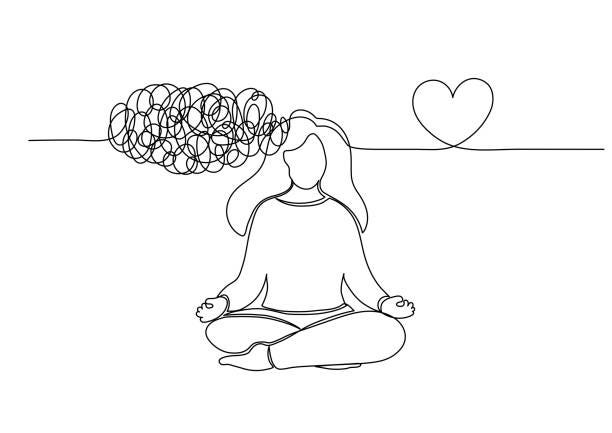The Paradox of Selfishness
When Putting Yourself First is the Best for Everyone Around You
I'm Manuel Saez, I write to help founders master emotional intelligence to make decisions with clarity and confidence 🌻 EQ coach, 2X-founder & award-winning designer ➜ I love fixing old motorcycles 🛵 🏍
Reading time: 8 min.
Contents:
Positive Selfishness: Prioritizing Your Well-Being Without Guilt
How Selfishness Can Strengthen Relationships
Embracing the Paradox of Positive Selfishness
Finding Balance: When Being Selfish is Bad
The Link Between Healthy Selfishness and Self-Esteem
For a long time, I saw selfishness as a negative trait—something good leaders, partners, and friends should avoid.
Early in my entrepreneurial journey, I felt compelled to constantly give to my company, my team, my customers, and my family… always putting their needs ahead of mine.
While that seemed intuitively the right thing to do, I was burning out in the process.
Over time, I saw the cracks in this approach. I wasn't setting boundaries and became exhausted and overwhelmed, which affected my decision-making.
I was neglecting my most important asset—myself.
Once I embraced a more balanced form of selfishness, everything changed. Prioritizing my well-being helped me regain energy and clarity and ultimately made me a better leader, partner, and friend.
But I also learned that not all selfishness is beneficial. Putting my needs first without considering others can damage relationships and create tension.
There's a fine line between positive selfishness that nurtures everyone and negative acts that push people away.
This is the paradox of being selfish: when done with care, prioritizing yourself benefits everyone around you.
Positive Selfishness: Prioritizing Your Well-Being Without Guilt
Positive selfishness is about prioritizing your well-being without feeling guilty because when you take care of yourself, you're better equipped to help others.
It can be as simple as getting enough sleep, exercising regularly, or dedicating time to eating healthily and connecting with loved ones.
Equally important is protecting your mental health. Nurturing yourself mentally and emotionally is vital, whether it's picking up a new hobby, learning a skill, seeking therapy, or practicing mindfulness.
Your emotional well-being is just as critical as your physical health.
Investing in your personal growth isn't selfish—it's essential. Whether you're reading, attending workshops, or taking classes, these actions set you up for long-term success in every area of life.
How Selfishness Can Strengthen Relationships
Being selfish in a healthy way can create balance in relationships.
By taking time for yourself and focusing on your needs, you're more likely to foster a respectful, supportive, and enduring relationship.
One of the major benefits is avoiding resentment. When one person constantly sacrifices their needs for another, they can feel overlooked, which strains the relationship.
On the other hand, regularly engaging in activities that make you happy helps prevent those negative feelings from festering, creating a more positive and supportive dynamic.
The best gift two people in a relationship can give each other is to be in harmony with themselves.
When you take care of yourself physically, emotionally, mentally, and spiritually, you're better equipped to handle the challenges that come with any relationship.
When you feel whole, you can show up as your best self for others.
Embracing the Paradox of Positive Selfishness
Being selfish doesn't mean being inconsiderate or thoughtless.
It's about recognizing when to prioritize your needs in a way that benefits you and enhances your ability to support those around you.
The paradox is that by taking care of yourself first, you actually increase your capacity to give to others.
For example, taking a sick day when you're feeling unwell might seem selfish, but it helps you recover faster and prevents others from getting sick.
Similarly, saying "no" to a coworker when you're already overwhelmed may feel uncomfortable at first, but it prevents burnout and allows you to be a more reliable and present team member in the long run.
Here are some additional ways to practice positive selfishness:
Set boundaries with friends, family, and colleagues to prevent feeling overwhelmed and maintain your energy.
Get enough sleep so you're well-rested and fully present in your work and relationships.
Don't hesitate to ask for help. It's a form of self-care that ultimately benefits both you and those around you.
Take time for joy. Whether it's reading, walking, or spending time with loved ones, engaging in activities that make you happy recharges your energy and improves your overall well-being.
By embracing this form of healthy selfishness, you create a stronger foundation for both personal and professional success. It's not about neglecting others but ensuring you are in the best possible position to support them.
Finding Balance: When Being Selfish is Bad
While taking care of yourself is essential, there's a fine line between healthy selfishness and behaviors that can harm your relationships and personal well-being.
It's important to recognize when prioritizing yourself crosses into being overly selfish, which can negatively affect those around you.
Here are some signs that you may be putting yourself first too often:
Constantly prioritizing your needs without considering others' feelings: If you frequently put your desires ahead of others without considering their emotions or needs, it can lead to resentment and feelings of neglect in your relationships. It's important to balance self-care with empathy.
Struggling to empathize with others or understand their perspective: Healthy selfishness should still leave room for empathy. Suppose you find it difficult to relate to others' experiences or see things from their point of view. In that case, you may be veering into unhealthy territory. Empathy helps maintain connection and mutual understanding.
Frequently canceling commitments to prioritize your own interests: If you often back out of plans or commitments to focus on what you want, it can send the message that others are less important. This can erode trust and reliability in both personal and professional relationships.
Feeling entitled to certain behaviors at the expense of others' well-being: A sense of entitlement—believing your needs should always come first—can harm your relationships. Disregarding how your actions affect others can create imbalance and damage your connections.
Self-care is crucial, but maintaining awareness of how your actions impact the people around you fosters stronger relationships and a more fulfilling life.
The Link Between Healthy Selfishness and Self-Esteem
Making yourself a priority is a powerful act of self-love. It reflects a deep belief in your worth, which naturally boosts self-esteem.
When you take time for yourself—whether through self-care, setting boundaries, or pursuing your personal goals—you reinforce the idea that your time, energy, and needs are just as important as anyone else's.
Doing so sends a clear message to yourself and others that you respect and value your own well-being. This strengthens your self-worth and teaches those around you to respect your time and boundaries.
On the other hand, consistently neglecting your needs in favor of others can erode your self-esteem over time. When you habitually put yourself last, you can experience resentment, burnout, or a diminished sense of self-worth.
This kind of self-neglect sends a different message—that your needs are less important, which can negatively affect your confidence and mental health.
Healthy selfishness, when practiced with balance, empowers you.
It builds confidence because it shows that you trust yourself to make decisions that honor your well-being without guilt.
As your self-esteem grows, so does your ability to maintain healthier relationships.
You become more capable of giving to others from a place of strength rather than depletion.
The key to healthy selfishness is balance. It's not about disregarding others or being insensitive to their needs. Instead, it's about valuing your own needs alongside those of others.
Balanced selfishness leads to respect from yourself and those around you, ultimately creating meaningful and fulfilling connections in your personal and professional life.
Selfishness is a positive trait when done with intention and balance. In fact, it's essential for maintaining mental, emotional, and physical well-being.
Prioritizing yourself allows you to create healthier relationships, avoid burnout, and improve your overall quality of life.
By practicing positive selfishness, you're taking care of yourself and positioning yourself to show up more effectively for others.
Sending you good vibes 🌻
Manuel Saez






